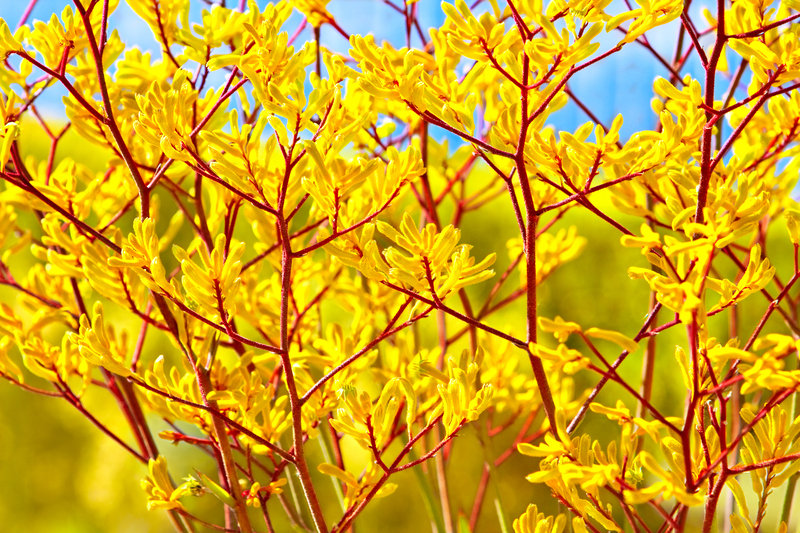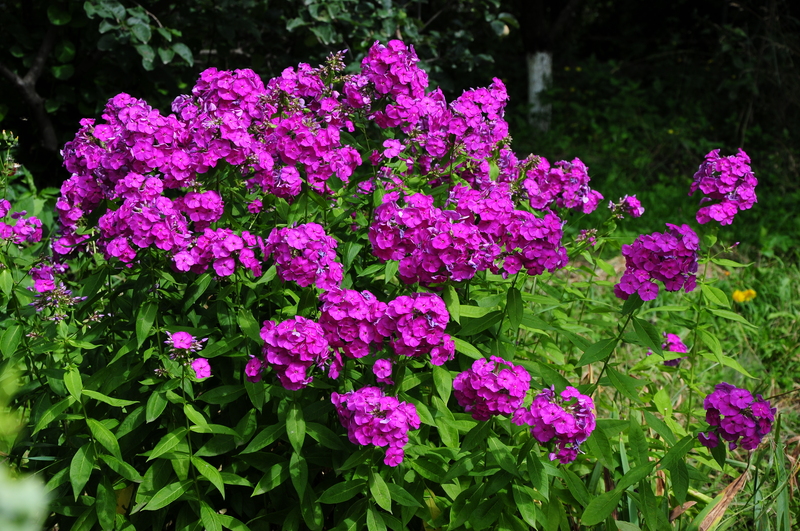Essential Advice for Beginners: 9 Gardening Tips
Posted on 26/05/2025
Essential Advice for Beginners: 9 Gardening Tips
Dreaming of a flourishing garden but not sure where to begin? Whether you have a spacious backyard or a modest balcony, starting your gardening journey can be both exhilarating and overwhelming. Every successful gardener started with the basics, making mistakes, learning, and growing along the way. To help you set out on the right path, we've compiled the most essential gardening advice for beginners--and packaged it into these nine actionable tips. Get ready to grow your green thumb!
1. Choose the Right Location
One of the most important gardening tips for beginners is to select the best spot for your plants. Plants need adequate sunlight, proper soil, and protection from harsh winds or heavy foot traffic. Observing how the sun moves across your space throughout the day helps.
- Most vegetables and flowering plants require at least 6 hours of sunlight each day.
- For shady areas, opt for shade-loving plants like ferns and impatiens.
- Consider ease of watering and proximity to your house for convenience.

2. Start With Easy-to-Grow Plants
Not all plant varieties are beginner-friendly. Some need more attention and experience. As a novice, choose hardy, resilient plants that forgive occasional mistakes. This will boost your confidence and yield quick results.
- Lettuce, radishes, and herbs like basil and mint are perfect for beginners.
- Sunflowers, marigolds, and pansies are colorful options for new gardeners.
- Once you gain experience, branch out to more challenging varieties.
3. Understand Your Soil
Soil is the foundation of every garden. Knowing your soil type allows you to choose suitable plants and amend the earth for better growth.
- Test your soil's texture by feeling whether it's sandy, clay-heavy, or loamy.
- Use DIY soil test kits to check pH and nutrient levels.
- Most vegetables thrive in slightly acidic to neutral soils (pH 6-7).
- Mix in compost or organic matter to improve soil fertility and structure.
4. Water Wisely
Improper watering is a frequent hurdle for new gardeners. Both overwatering and underwatering can harm your plants. Here's how to strike the right balance:
- Water in the morning, so plants dry off before nightfall, reducing disease risk.
- Use a soaker hose or watering can to target soil--not leaves.
- Check soil moisture before watering--if it's damp an inch below the surface, hold off.
- Consistent, deep watering encourages deep roots and healthier growth.
Tip: Wilting leaves aren't always a sign of drought; they may also signify overwatering. Ensure proper drainage so roots don't sit in soggy soil.
5. Feed Your Plants Regularly
Nutrient-rich soil supports resilience and productivity. Even if you've built your garden on great soil, plants can eventually deplete nutrients as they grow.
- Apply a balanced organic fertilizer every few weeks, following package instructions.
- Compost kitchen scraps and fallen leaves to create your own nutrient boost.
- Mulch garden beds with straw, compost, or bark to retain moisture and enrich the earth as it breaks down.
6. Stay on Top of Weeds
Weeds compete with your plants for resources and introduce pests and diseases. Managing weeds is one of the most important beginner gardening tips.
- Pull weeds when they're young and before they set seed.
- Apply mulch liberally to suppress weed growth and maintain soil moisture.
- Use a hoe or hand fork for tight spots between plants.
7. Learn to Recognize Pests and Diseases
Garden pests and diseases can be daunting for beginners. Early detection and action can save your plants.
- Examine leaves and stems regularly for holes, spots, or unusual coloring.
- Remove affected leaves and destroy them--never compost diseased material.
- Encourage beneficial insects like ladybugs and lacewings that control pests naturally.
8. Prune and Deadhead for Healthier Plants
Pruning fosters new growth, enhances air circulation, and prevents disease.
- Remove dead or wilting flowers (deadheading) to encourage continual blooming.
- Trim back overgrown stems and branches for bushier, healthier structure.
- Use clean, sharp tools to avoid spreading disease.
9. Be Patient and Keep Learning
Gardening is a journey, not a race. Plants need time, and so do you as you develop your skills. Every season will bring new lessons.
- Record your successes and failures in a gardening journal.
- Experiment with different plants, layouts, and techniques.
- Connect with local gardening communities--online and in real life--for support and inspiration.

Bonus: Frequently Asked Questions About Gardening for Beginners
- What is the best time to start gardening?
Most gardeners start in spring, but some plants thrive in summer or fall. Check your local planting calendar for the best times for your region. - How often should I water my garden?
It depends on plant type, weather, and soil. Typically, once or twice a week--water deeply, not just on the surface. - Can I grow vegetables and flowers in containers?
Absolutely! Many vegetables and flowers thrive in pots. Just ensure adequate drainage and space. - What tools do I need to start gardening?
Essentials include a trowel, hand fork, pruners, watering can, gloves, and perhaps a spade and hoe for larger spaces.
Final Thoughts: Enjoy Your Gardening Journey
Every gardener's story begins with a single seed. By following these essential gardening tips for beginners, you can sidestep common pitfalls and cultivate a thriving, beautiful garden--no matter your space or experience level. Remember: Start small, practice patience, and keep learning. The rewards are worth the effort!
Quick Summary: 9 Essential Gardening Tips for Beginners
- Pick the perfect garden location.
- Grow easy, resilient plants at first.
- Test and improve your soil.
- Master the art of watering.
- Fertilize with organic matter.
- Keep weeds in check.
- Watch for pests and diseases.
- Prune and deadhead regularly.
- Practice patience and always be learning.
Ready to get your hands dirty? Start today and let your gardening adventure begin. For more beginner gardening tips and plant inspiration, subscribe to our newsletter and join fellow nature enthusiasts on the journey to a lush, healthy garden.

